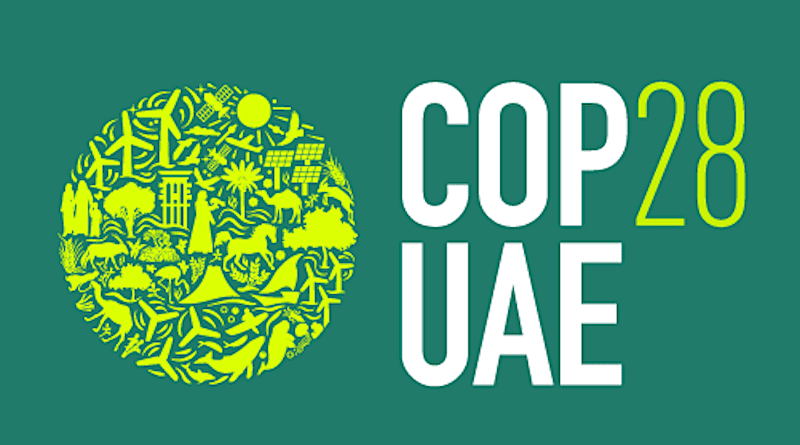In Dubai At COP28, ASEAN Has A Unique Role To Play – OpEd
By Azis Armand
As another November approaches, the 28th edition of the United Nations’ annual climate change conference, the ‘Conference of the Parties’ or ‘COP’, comes to Dubai. From its humble beginnings in Berlin in 1995, where skepticism still lingered in the air, COP has evolved into a critical global event. It’s a stark reminder that our world has been irrevocably altered by record-breaking temperatures, biblical floods, ferocious forest fires, and an onslaught of climate-related disasters. Climate change is not just an accepted reality; it’s an imminent, existential threat that looms over every nation.
Following the groundbreaking outcomes of COP27, which focused on the global south and established the ‘Loss and Damage Fund,’ it’s evident that countries with the smallest greenhouse gas footprints bear the disproportionate brunt of climate change’s wrath. As COP28 beckons this fall, it comes with the mandate to respond to the Global Stocktake (GST) and bridge the chasm towards 2030. Envisioned at COP21 in 2015, the GST evaluates each nation’s trajectory in line with the Paris Agreement‘s goal of limiting global temperature rise to ‘well below’ 2 degrees Celsius. Alas, the UN’s Global Stocktake Report grimly reveals that countries are perilously off-course, making COP28 an unequivocal wake-up call, compelling nations to intensify their climate efforts.
Amidst the chorus of countries, one region stands out as particularly vulnerable – Southeast Asia. With its extensive coastlines and densely populated low-lying areas, Southeast Asia faces the unenviable task of confronting climate change’s consequences head-on. What makes this region remarkable is its steadfast commitment to regional cooperation. The Association of Southeast Nations (ASEAN) has diligently fostered unity on climate issues, aligning itself with the United Nations Framework Convention on Climate Change (UNFCCC). This solidarity is palpable through the numerous Joint Statements made by ASEAN to the UNFCCC and ASEAN’s recent State of Climate Change Report, which pledges allegiance to the Paris Agreement.
ASEAN’s pathway to achieving its climate goals heavily relies on the private sector. Finance emerges as the linchpin, deemed vital to achieve a recovery in line with the Paris Agreement’s adaptation and mitigation objectives. Member states are in a race to secure public and private funding, given their heavy reliance on fossil fuels as emerging economies. Consequently, energy sector policy support is pivotal, ensuring broad investor participation.
Leading the charge in this endeavor is Indonesia, the largest economy in Southeast Asia and the current Chair of ASEAN. With a Presidential Decree advocating for renewables and the phased retirement of coal plants in September 2022, Indonesia has created a conducive environment for private energy companies to spearhead the transition to innovative and renewable solutions.
Companies like our own Indika Energy have been instrumental in nurturing Indonesia’s electric vehicle (EV) ecosystem through the Ilectra Motor Group (IMG) joint venture. Indeed, the EV sector is a beacon of hope for all of ASEAN. Blessed with abundant raw mineral resources and a prominent global position in mineral and metal product supply, ASEAN is poised to claim a critical role in the burgeoning global EV market.
In 2023, ASEAN leaders demonstrated unequivocal commitment to building the region’s EV supply chain, with the goal of becoming a global EV manufacturing hub. However, realizing this ambitious goal hinges on substantial investments akin to those championed by Indika Energy, which are indispensable for expanding the region’s capabilities.
The private sector must also prioritize the sustainability of EV processing, for example the embracing of the innovative DNi technology. This breakthrough allows producers to convert lower-grade ores into high-grade nickel without compromising environmental standards. By recycling over 98 percent of nitric acid with minimal waste, such clean technologies exemplify ASEAN’s potential as a serious partner and investment destination in renewable energy on the global stage.
Hence, ASEAN nations, especially Indonesia, are weaving the energy transition into their regional development fabric. This approach, aligning corporate strategies with government goals, assumes paramount importance as COP28 approaches this November.
With the green transition the talk of the town, ASEAN and Indonesia are perfectly placed to capitalize. As a region that has not only harnessed its natural resources but also maximized efficiency through private sector innovations, ASEAN is poised to rise to the occasion. The world’s eyes will be on COP28, where pivotal decisions could shape our shared destiny in the face of climate crisis.

